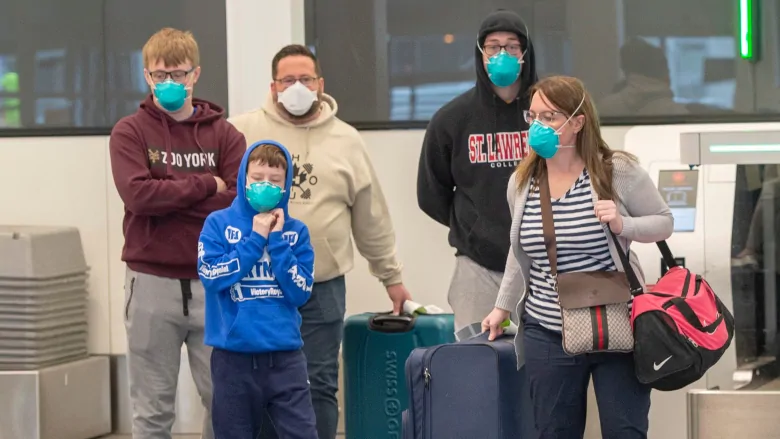Tens of thousands of Canadians abroad are starting to worry about how they’ll get home, as commercial flights cease in many countries with shuttered borders — and they’re asking the federal government to do more to help repatriate stranded travellers.

Tens of thousands of Canadians abroad are starting to worry about how they’ll get home, as commercial flights cease in many countries with shuttered borders — and they’re asking the federal government to do more to help repatriate stranded travellers.
The federal government has said Canadians abroad should come home as soon as possible as the COVID-19 pandemic spreads to virtually every country on earth. For an increasing number of people, however, that simply isn’t an option.
CBC News has heard from dozens of Canadians facing hardship abroad — most notably in countries like Ecuador, Morocco, Peru and the Philippines, where virtually all movement, including domestic travel, has come to a standstill as governments work to slow the spread of COVID-19.
Many Canadians have said they’ve had difficulty reaching staff at embassies or consulates charged with helping citizens abroad.
Public health restrictions have made in-person visits all but impossible in some places. Emails to Global Affairs Canada have gone unanswered as bureaucrats deal with a crush of correspondence from an untold number of stranded Canadians.
Sunwing, a leisure charter airline, has suspended southbound flights to holiday destinations to focus on bringing Canadians home. On Tuesday, their aircraft brought over 500 Canadians home from Honduras, Aruba and Panama — countries that have started to close their borders — but many others have been left behind.
The federal government has said it has no plans to repatriate people from other countries, so some travellers inevitably will be stranded for some time.
The federal government said Wednesday it will be working with cell phone providers, like Bell, Rogers and Telus, to send texts to all customers roaming abroad offering further information on consular assistance. Those texts will contain “consular support information and key contact information.”
But stranded travellers and their families said Wednesday they’re looking for more than text messages from their government.
‘Absolutely terrified’
Theresa C. said she is “absolutely terrified” for her son John, a 24-year-old Halifax firefighter now stuck in Peru after travelling there to climb Machu Picchu. On Sunday, President President Martin Vizcarra issued a 15-day nationwide state of emergency declaration and immediately ordered the borders closed, with nobody allowed in or out. (Theresa did not want to give her last name for fear of jeopardizing her son’s safe passage.)
John and two of his friends have been confined to a hotel room in Arequipa for days, with soldiers on guard outside the building to enforce martial law in a country that has gone to extreme lengths to slow the spread of COVID-19.
The airports there have been shuttered and car traffic is forbidden. She said nothing less than a rescue flight organized by the Canadian government will get her son home.
“It is a very, very dire situation

